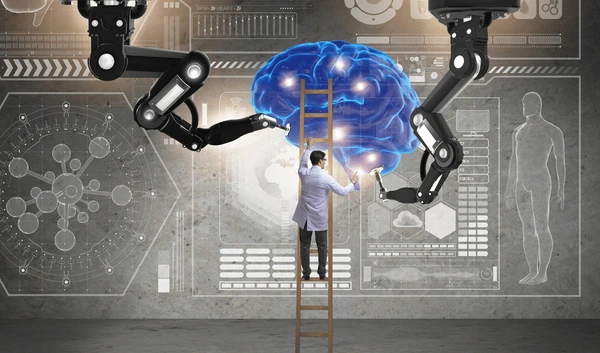The Mental Health Consequences of Living in an AI-Driven Era
The rapid integration of Artificial Intelligence (AI) into the fabric of modern life—from smart assistants and personalized newsfeeds to algorithmic hiring and deepfake technology—is fundamentally reshaping human experience. While AI promises efficiency, convenience, and breakthroughs in fields like medicine, it also presents a new constellation of psychological challenges. Living in an AI-driven era requires us to consciously navigate this digital mindscape, understanding both the benefits and the significant mental health consequences that arise when human cognition, connection, and control intersect with powerful, invisible algorithms.
The New Anxieties: Fear of Displacement and Loss of Agency
One of the most profound psychological impacts of AI stems from the economic and professional uncertainty it introduces. The widespread discussion of AI-driven automation replacing human jobs—from truck drivers to code writers—fuels a deep-seated anxiety about future financial stability and self-worth. Work is a primary source of identity and social status, and the threat of large-scale job displacement creates a pervasive sense of vocational insecurity. This collective anxiety, often termed "automation anxiety" or "techno-stress," can manifest as burnout, depression, and a feeling of professional obsolescence.
Beyond the workplace, a subtler but equally damaging consequence is the loss of agency and decision fatigue. As algorithms curate our music, recommend what to watch, and even suggest our driving routes, we outsource countless micro-decisions. While convenient, this over-reliance on AI can lead to what some researchers call AI-Induced Cognitive Atrophy (AICICA). When critical thinking, problem-solving, and independent decision-making are constantly offloaded to a machine, the cognitive muscles responsible for these skills may weaken. The feeling that our lives are being dictated by an opaque, external force—the algorithm—can foster feelings of helplessness and a diminished sense of purpose, stripping away the feeling of being the primary author of one's own life.
The Connection Crisis: Algorithms and Social Isolation
AI’s role in social platforms has profoundly altered the nature of human connection. Social media algorithms, designed to maximize engagement for profit, prioritize content that often reinforces extreme views, idealizes lifestyles, and triggers comparison.
● Amplified Comparison and Inadequacy: Constant exposure to highly-curated, AI-promoted versions of success, beauty, and happiness fuels the Fear of Missing Out (FOMO) and a cycle of validation-seeking. This can severely diminish self-worth and contribute to higher rates of anxiety and depression, particularly among younger generations who have grown up with this algorithmic reality.
● The Rise of Algorithmic Companionship: As social anxiety and loneliness rates climb, many individuals turn to AI chatbots for emotional support and companionship. While these tools offer a discreet, 24/7 presence, an over-reliance on them can diminish the capacity for genuine, complex human connection. Real-world relationships require vulnerability, nuance, and the ability to tolerate conflict—skills that can atrophy when the primary "relationship" is with an unfailingly agreeable, non-judgmental machine. This shift towards synthetic intimacy deepens real-world social isolation.
Ethical and Cognitive Challenges
The mental health consequences of AI are also tied to fundamental issues of trust, bias, and privacy. AI systems are only as unbiased as the data they are trained on. This means algorithmic bias can lead to discriminatory outcomes in sensitive areas like loan approvals or even judicial sentencing, creating a climate of suspicion and inequity that psychologically burdens those who are already marginalized.
Furthermore, the proliferation of sophisticated AI-generated content, such as deepfakes, erodes the very concept of verifiable reality. This constant need to question what is real and what is fabricated creates cognitive load and can lead to a pervasive, low-level anxiety about the truth itself. The psychological safety that comes from a shared, verifiable reality is slowly being dissolved.
A Double-Edged Sword: AI in Mental Healthcare
Ironically, AI offers some of the most powerful tools to combat the mental health crisis it contributes to. The potential for AI to bridge critical gaps in care is immense:
● Accessibility and Early Detection: AI-powered tools can analyze speech patterns, social media usage, and data from wearables to detect early indicators of depression, anxiety, or even psychosis, making interventions more timely and personalized. For underserved communities, AI chatbots offer affordable, immediate, and stigma-free support. The emergence of professional AI Counseling in California exemplifies the push for ethical, science-backed integration.
● The Indispensable Human Element: Despite the benefits, there is a vital ethical debate about the limits of AI in therapy. While AI can deliver evidence-based techniques like Cognitive Behavioral Therapy (CBT) and track symptoms, it cannot yet replicate the core healing factors of the therapeutic relationship: empathy, intuition, and authentic human connection. The "therapeutic alliance" between a patient and a human professional remains an irreplaceable component of deep psychological healing. The future of mental healthcare will likely be a synergy—AI handling data analysis and basic support, with human therapists providing the essential, empathetic core of treatment.
Conclusion
The AI-driven era is here, and it is reshaping our minds, our jobs, and our relationships. To safeguard our mental health, we must cultivate algorithmic literacy—understanding how these systems work and how they influence our thoughts and feelings. We need to intentionally prioritize human connection, maintain a core of independent decision-making, and use AI as a tool to enhance our well-being, not replace the human experience.
At Interactive Mind Counseling, I see firsthand the challenges the digital world presents to emotional well-being. My work is dedicated to helping clients build the emotional resilience and critical awareness necessary to thrive in this new landscape. I believe that technology should serve humanity, not the other way around. Therefore, I am committed to providing the nuanced, empathetic, and uniquely human support that ensures your core sense of self, agency, and connection remains strong, even as the digital world evolves at breakneck speed.
Get in touch for AI Counseling in California.


